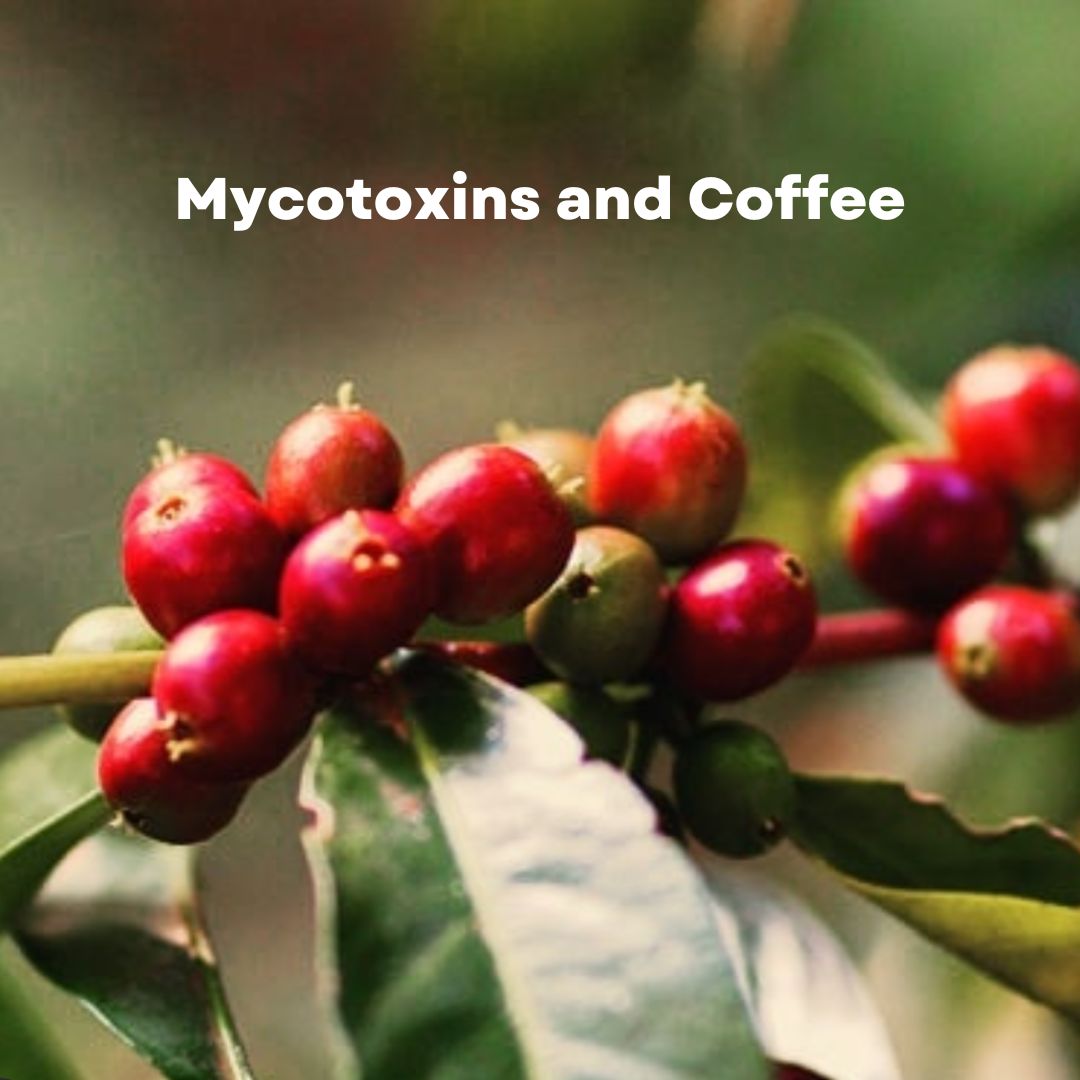Coffee and Mycotoxins

Caffeine-conscious people are also often health-conscious people too. There are many health benefits of coffee, but you, no doubt, have heard that coffee contains mycotoxins. We thought we’d unpack that and shed some light on it.
What are mycotoxins?
These are toxins formed by molds that grow on crops like grains, peanuts, chili peppers, sweetcorn, sunflower seeds, cassava, wheat, fruit, spices, and coffee beans.
People are regularly exposed to trace amounts of harmful substances including mycotoxins. As long as the exposure remains low, the liver can process them not allowing them to build up in the body.
The production of molds and mycotoxins increases greatly in areas or regions with high moisture and humidity. Since optimum coffee-growth is also achieved in tropical regions with high moisture, coffee beans tend to get exposed to these toxins rather easily.
Which mycotoxins are found in coffee?
The two toxins that are prevalent to coffee are aflatoxin B1 and Ochratoxin A.
- Aflatoxin B1 is a known carcinogen and is considered to be one of the most toxic variants of aflatoxins (all aflatoxins are poisonous and produced by molds ). These chemicals grow in soil, grains, beans, etc.
- Ochratoxin A has been less studied, but it’s believed to be a weak carcinogen that may be harmful to your kidneys. It is a natural foodborne toxin produced by various types of fungi including Aspergillus and Penicillium. Several studies have found measurable levels of mycotoxins in coffee beans in all forms — green (unroasted), roasted, and brewed. According to the National Library of Medicine 33% of green coffee imported from Brazil tested with low levels of ochratoxin A. It also shows that the highest levels of aflatoxins have been found in decaffeinated green coffee, but that those levels are reduced by 42-55% by roasting.
Studies have shown that the mycotoxin levels in coffee have not been shown to rise to the level of being dangerous for our health. If, however, you struggle with mold related illnesses, you may want to pursue an elimination diet to pinpoint the source. It will be difficult to eliminate all possible traces and trying to do so may cause extra anxiety and stress.
One thing is for sure, low-quality (not specialty grade) beans that have been improperly sourced or processed are likely to contain mycotoxins. The majority of contamination occurs due to poor storage or during the drying and processing.
When coffee cherries are harvested too early (often to due coffee shortages or weather issues that demand an early harvest it can create the perfect storm for mold to crow due to its lack of maturity. Furthermore, coffee that is shade-grown and rather dense, often remains wet allowing for mold to grow. Ultraviolet light and air flow are crucial to keeping mold at bay.
Proper storage is key. Good ventilation and temperature/humidity control are crucial. Keeping green coffee under 12.5% moisture is helpful to reduce mold growth. Specialty coffee producers are very mindful of this.
Tests showed that roasting to very dark significantly reduced levels of mycotoxins, however, at this level the coffee tastes quite burnt and no longer contains any of the healthy benefits.
What's our part in this? We, here at Talking Crow, make every effort to monitor moisture levels of all our green coffees in our warehouse and keep them at acceptable levels.
We responsibly source all our coffees. All are specialty grade. The producers take pride in their coffee and value this title. They have specific growing, harvesting, processing strategies to avoid the growth of mold and other defects with their coffees. Most are organic and traceable down to the lot. All of our caffeine-free coffees are decaffeinated at the Swiss Water Process plant. Aflatoxin A, is controlled in their facility by their Hazard Analysis and Risk-Based Preventive Controls (HARPC) plan. Moisture content is a critical control point and controlling the moisture content of the decaffeinated coffee allows them to confidently ship coffee that does not have a risk of mold or Mycotoxin growth. They are certified by Foundation Food Safety System Certification 22000 (FSSC 22000) and receive yearly audits to make sure that they are following our HARPC and other food safety plans.
Our coffees are high-quality, specialty grade, well-sourced, and well-processed beans that ensure maximum protection from toxins or any other harmful substances.